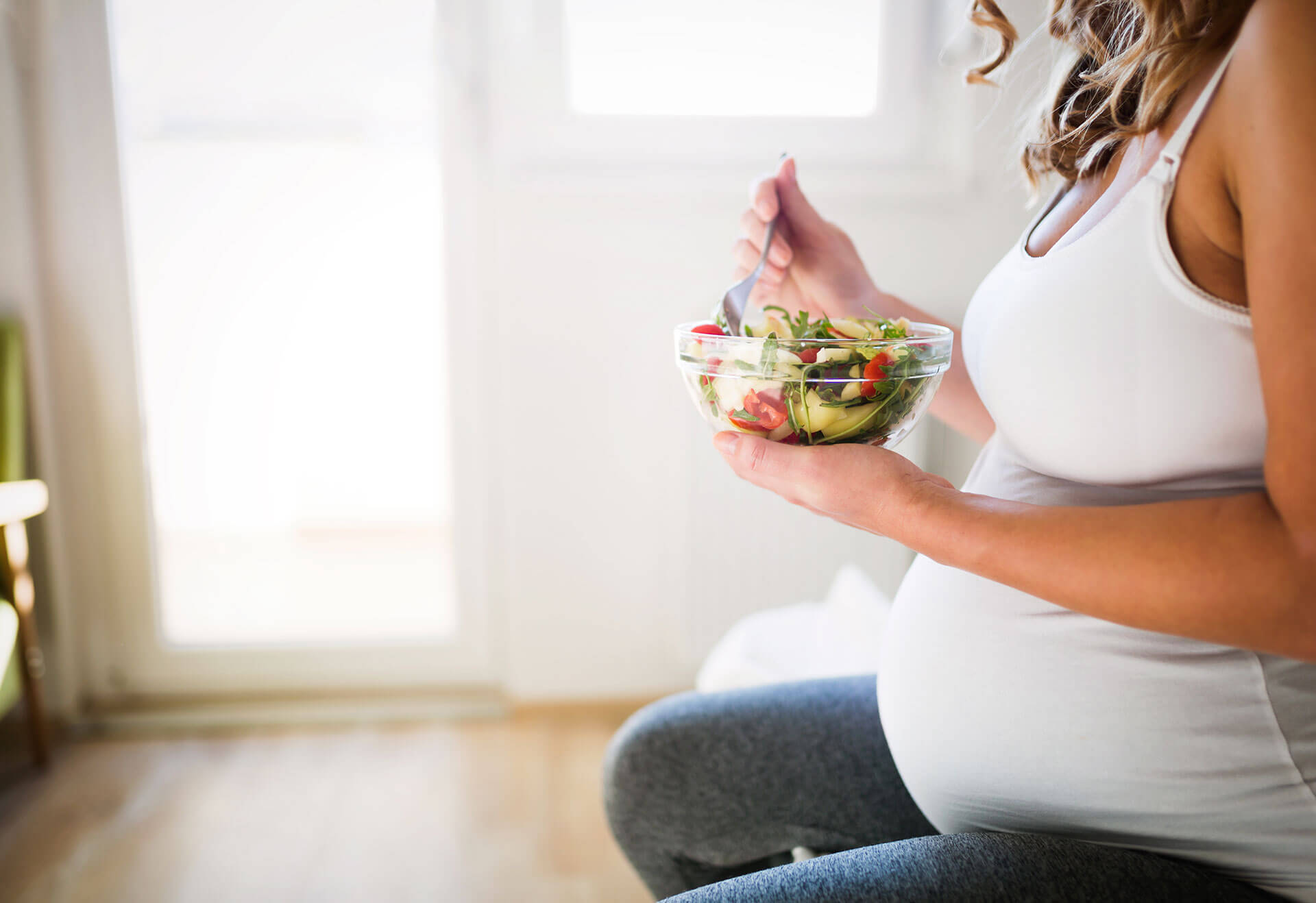Pregnancy Food & Healthy Diet
While pregnant, you might find yourself thinking more about what you eat. Here are a few pregnancy food and diet ideas to help you make the right choices without too much effort – and plan in advance to eat right!
Eat a little more… but don’t eat for two!
It takes energy to develop a healthy baby and that energy comes from the food you eat. During pregnancy, your energy demands will increase over time. There is no need to change anything during the first trimester. In your second trimester, your energy needs will increase by 1400kj/day and in your last trimester, 1900kj/day. So it doesn’t mean eating twice as much at all.
Eat a Varied Diet
Eat a variety of nutritious foods every day from each of the four food groups to get plenty of essential nutrients – be mindful of food safety in pregnancy. Click here to view the Ministry for Primary Industries Booklet.
Best Foods for Pregnancy
Vegetables and Fruit
Try to eat at least 3 portions of vegetables and 2 portions of fruit per day –
Fresh orange juice at breakfast and fruit on cereal; green vegetables and a piece of fruit at lunch, an apple as a snack and lots of salad or vegetables at dinner.
During pregnancy, your need for folic acid is higher. Folic acid is needed for the formation of blood cells and new tissue. Vegetables and fruit are a good source of folic acid. Lack of folic acid has been linked with neural tube birth defects. This risk may be reduced by taking a folic acid tablet daily before pregnancy until at least 12 weeks, or as advised by your LMC.
Bread and Cereals
Aim for at least 6 servings per day of bread and cereals. They provide energy and are an important source of fibre and some vitamins and minerals. Why not try wholegrain cereals and wholegrain bread which, together with vegetables and fruit, provide more fibre. Fibre is important to keep you regular.
Choose bread that has folic acid added to it – this should be written on the label.
Milk and Milk Products
Your calcium needs are up to 1000 mg per day during pregnancy. Consuming plenty of milk and milk products (at least 3 servings per day) will help maintain your bone structure which is especially important as your baby’s skeleton develops.
Reduced- or low-fat milk, yoghurt and hard cheese are recommended.
Meat, Fish, Eggs and Pulses
In a healthy diet, protein is essential – usually supplied by meats, chicken, fish, pulses, milk and eggs. It’s the number one building block for your growing baby. Your iron and zinc needs are higher during pregnancy – lean meats (especially red meats), chicken and seafood are good sources of iron that is well absorbed. Iron is the main constituent of haemoglobin, bringing oxygen to the cells and is important for the development of your baby.
It’s important that food that requires cooking is heated through thoroughly, served hot and eaten immediately after cooking.
Drink Water
Aim to drink at least 2.3 litres (around 9 cups) of fluid per day while you are pregnant. Opt for water or low-fat milk rather than carbonated beverages and sugary drinks, and it is best to limit your consumption of caffeinated drinks while pregnant.
Snack Ideas
Eat them during the morning and/or afternoon. Opt for cereals, fruit and protein.
Try one of these:
- 1 cereal bar + 1 apple
- 1 slice of wholegrain bread + peanut butter + a few strawberries
- 1 portion of natural yoghurt + vegetable sticks
- Cubes of hard cheese + fresh fruit
Things You Might Want to Avoid
Eating too many pastries, sweets and other high calorie foods that don’t provide many essential nutrients. They are of little nutritional value for you or your baby and high in saturated fat and sugars.
Skipping meals. Your body needs regular meals. If you’re really struggling, try eating a few crackers when you wake up (before getting out of bed) and/or take your breakfast with you in the morning for when you are able to manage it. Keep it simple: try an apple, some biscuits or a piece of dry toast and some dried fruit.
Eating erratically. With regular meals e.g. three balanced meals and one or two snacks per day, it may be less tempting to indulge in less nutritious foods.
Too much caffeine. It’s okay to drink coffee and tea, but try to keep it to a minimum and stay away from energy drinks. Put some lemon into your water, for example, to give it more taste without adding calories.
Obsess about your weight. A good indicator of how well your pregnancy is progressing is your weight. Your doctor should be able to monitor it to make sure you are on track to gain the recommended amount of weight.


